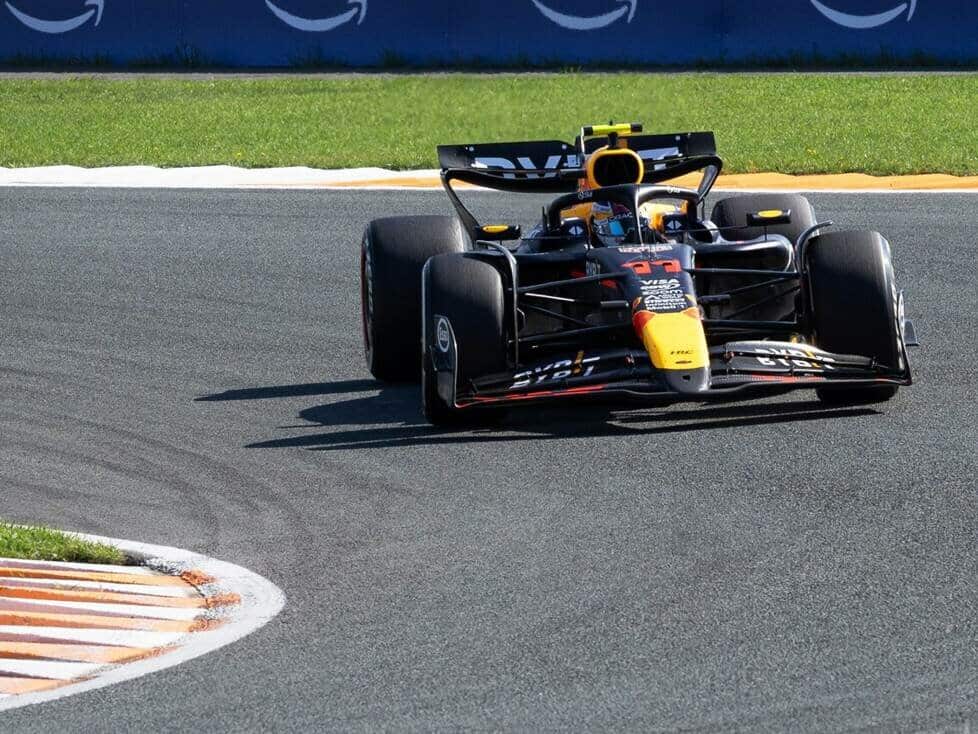Red Bull’s technical director Pierre Wache talks about the team’s correlation problems and says that they are not completely solved – this is not possible in F1 either.
Red Bull’s difficulties with the balance of the RB20 were partly due to problems with correlation, where the results from the virtual world did not match reality on the track.
Even motorsport consultant Helmut Marko had to admit that the correlation at Red Bull was not optimal, and Max Verstappen concluded that the team seemed to be “a bit lost” in the middle of the season.
“When you have a problem with correlation, you are a bit lost, of course,” technical director Pierre Wache agrees with Verstappen. ”Max sees it differently because there is always a small delay between what we bring him and what we are working on. What we bring into the system, we have already tackled two or three months before.”
“For him, it’s a phase problem, but from our point of view, it’s clear that if there’s a correlation problem, you can no longer trust your tools. And if you can no longer trust your tools, you have to find a way to modify them to find the correlation again,” he continues.
“Then you’re lost because you doubt everything you do. You’re not lost, but you doubt the results that the tools provide you.”
When asked whether Red Bull has now solved the correlation problem, Wache smiles: “No, it will never be completely solved.” The reason for this, says the 50-year-old Frenchman, is that the correlation between the virtual world and the track in modern Formula 1 can never be 100 percent.
“What’s more, if you have the same regulations over a period of time, the gains are very small and the demands for accuracy are even higher,” he says. Wache points out that the battle between the four top teams is so close today that the teams are only making marginal gains, which makes the details of the correlation even more important than before.
“The correlation aspect is becoming more and more important because you are looking for small things,” Wache continues. ”On the aerodynamic side, and the same goes for the suspension, you are looking for two or three points of downforce in the floor, in the bodywork, and so on.”
“That has knock-on effects on the rest of the car, and also in areas you haven’t tested in the wind tunnel because you can’t test them with CFD. That’s when it gets dangerous,” he says. That’s exactly what happened in 2024: Red Bull developed upgrades that were supposed to provide more downforce in theory, but in practice had unwanted side effects and upset the balance of the car.
Do the opponents also have problems?
“If I say that, then firstly you have a correlation problem because the delta you are trying to find is small, and secondly you have a correlation problem because you cannot reproduce certain physical conditions.”
“That’s because, by definition, you’re working with a smaller model [in the wind tunnel] and not with reality. But all the other teams have the same problem, to be honest,” Wache explains in an interview with the Dutch edition of Motorsport.com.
McLaren, however, does not seem to have encountered this problem yet. In 2024, all the upgrades the team from Woking introduced worked. “Last year, yes,” the technical chief interjected. “But I don’t know. At the beginning of the year, they weren’t up to scratch at all.”
“The year before, they weren’t good at all. In 2022, they were nowhere. McLaren has built a car since Miami that is good. In the two and a half years before that, they weren’t impressive.”
Nevertheless, after Wache’s comments, one would expect that teams like McLaren would eventually reach a limit and face similar problems. “I don’t know where they stand, but above all, I don’t know why they haven’t found performance before, whether it was due to the correlation or something else. I don’t know,” he says.
“I’m not part of their team, but the result for us is that it is now more difficult to find additional performance, especially with the tools at our disposal.”
2024 “an interesting year” and a learning experience for the future?
While Wache points out that correlation problems can never be completely eliminated, the question remains as to whether the situation has improved compared to last season. “It has improved in the areas we understand,” he says.
“But in F1, there’s always the risk that another problem will arise. That’s the reality and the reason why we are here, to try to anticipate the problems we will have.”
And that’s what makes Formula 1 so interesting from a technical point of view, says Wache. “Blind faith in the system is dangerous,” he warns. “I’m not saying you shouldn’t have it, but you have to make sure you put everything in perspective and don’t reproduce exactly what you’re testing on the track.”
Wache adds that no Formula One team should blindly trust the numbers: “A team can only be good if you have doubts and are never sure. If you are sure, you know you have failed.”
In this sense, Wache describes 2024 as an interesting year for Red Bull. “To be honest, as an engineer, I feel very positive about what we experienced last year. When you win, you don’t dwell on problems or details as much as when you have issues on the track. When you’re no longer the fastest, you look and learn.”
“And the more you learn, the more it’s an investment in the future.”





